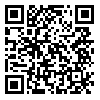1- Allameh Tabataba'i
Abstract: (613 Views)
Abstract
Background and Objectives: Because of the criticisms of focusing solely on cognitive, behavioral, and physical elements as separate components in anger treatment, recent researches examines anger in a dynamic network of pathological elements. In this approach, identifying the network of symptoms, core elements, and components of each core element is a priority. Schema modes therapy can be tailored for anger based on this perspective, so that the core elements in schema modes therapy can be identified and then its effectiveness on the core element components that have the most empirical support can be measured. Threat perception, worry, and anger rumination have the most research support in anger. Obviously, this tailoring is necessary to optimize therapeutic effects. The present study aimed to develop and validate a schema modes-based anger management training package and measure its effectiveness on threat perception, worry, and anger rumination.
Methods: The research method was a mixed method (sequential exploratory design). The statistical population was students of Allameh Tabataba'i University in 1402-1403 and the samples were purposive. Based on the findings from three samples of the qualitative section, the content of the schema modes therapy was tailored and turned into a training package. In the quantitative section, 30 samples were randomly assigned to two experimental and control groups (15 in each group) after matching. The follow-up phase was implemented 2 months later. Data collection was performed using interviews, questionnaires, and data analysis was performed using a multivariate analysis of variance test with repeated measures.
Results: In the qualitative section, three themes of child modes, coping modes, and punitive parent mode were obtained. In the quantitative section, the effect of time, group effect, and the interaction effect of group and time on the research variables were significant (P<0.001). The mean scores of the research variables in the experimental group in the pre-test, post-test, and follow-up were significantly different (p<0.001), and in the post-test and follow-up, they decreased significantly compared to the pre-test (p<0.001).
Conclusion: Based on the research results, it is concluded that the tailored anger management training package based on schema modes is beneficial in reducing threat perception, worry, and anger rumination, and its effectiveness is sustainable over time.
Background and Objectives: Because of the criticisms of focusing solely on cognitive, behavioral, and physical elements as separate components in anger treatment, recent researches examines anger in a dynamic network of pathological elements. In this approach, identifying the network of symptoms, core elements, and components of each core element is a priority. Schema modes therapy can be tailored for anger based on this perspective, so that the core elements in schema modes therapy can be identified and then its effectiveness on the core element components that have the most empirical support can be measured. Threat perception, worry, and anger rumination have the most research support in anger. Obviously, this tailoring is necessary to optimize therapeutic effects. The present study aimed to develop and validate a schema modes-based anger management training package and measure its effectiveness on threat perception, worry, and anger rumination.
Methods: The research method was a mixed method (sequential exploratory design). The statistical population was students of Allameh Tabataba'i University in 1402-1403 and the samples were purposive. Based on the findings from three samples of the qualitative section, the content of the schema modes therapy was tailored and turned into a training package. In the quantitative section, 30 samples were randomly assigned to two experimental and control groups (15 in each group) after matching. The follow-up phase was implemented 2 months later. Data collection was performed using interviews, questionnaires, and data analysis was performed using a multivariate analysis of variance test with repeated measures.
Results: In the qualitative section, three themes of child modes, coping modes, and punitive parent mode were obtained. In the quantitative section, the effect of time, group effect, and the interaction effect of group and time on the research variables were significant (P<0.001). The mean scores of the research variables in the experimental group in the pre-test, post-test, and follow-up were significantly different (p<0.001), and in the post-test and follow-up, they decreased significantly compared to the pre-test (p<0.001).
Conclusion: Based on the research results, it is concluded that the tailored anger management training package based on schema modes is beneficial in reducing threat perception, worry, and anger rumination, and its effectiveness is sustainable over time.
Type of Study: Original Research Article |
Subject:
Psychology
Send email to the article author
| Rights and permissions | |
 |
This work is licensed under a Creative Commons Attribution-NonCommercial 4.0 International License. |


